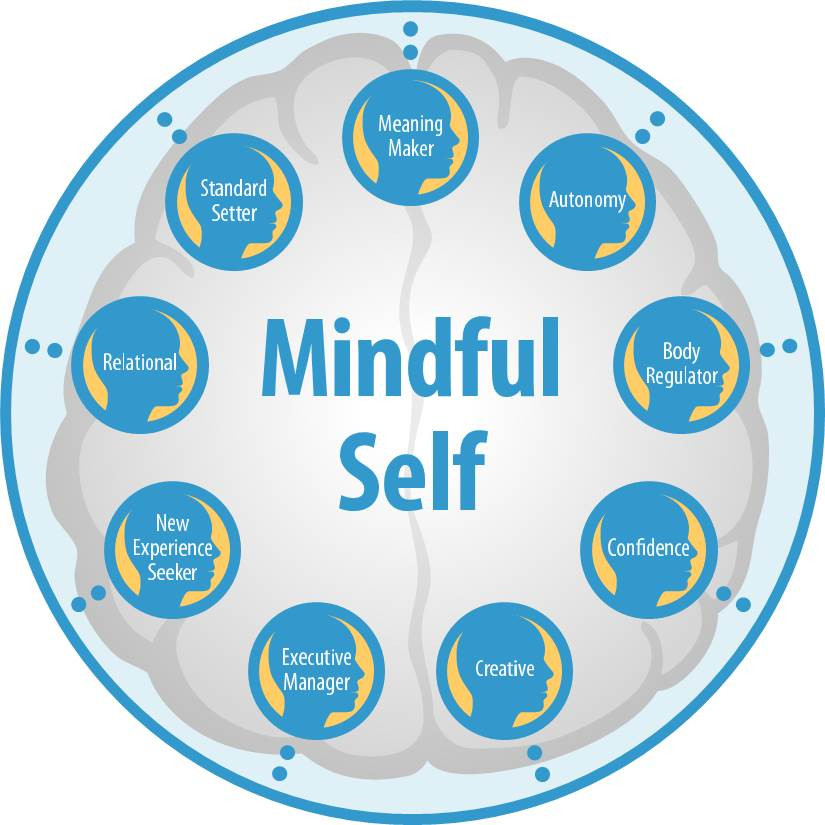
Can white noise really help you sleep better?

Celiac disease: Exploring four myths

What is prostatitis and how is it treated?

What is Cushing syndrome?

Exercises to relieve joint pain

Think your child has ADHD? What your pediatrician can do

Foam roller: Could you benefit from this massage tool?

Stepping up activity if winter slowed you down

Common causes of cloudy urine

Dragon fruit: How to enjoy this antioxidant-rich fruit
Mental Health Archive
Articles
Getting kids back to school: Inside out
Harvard Medical School authors have written a new book entitled Organize your Emotions, Optimize Your Life, that explains a way to frame how your mind processes a range of emotions. An adult version of the children’s movie Inside Out, the book proposes that the human psyche has nine inner “voices.” By addressing the distinct needs, agendas, and emotions people can better address life challenges, big and small. In this post we apply this model to getting your kids back to school in a positive and productive way.
Unveiling post-traumatic stress disorder
Often considered an ailment of only military veterans, this condition also can affect many older men.
Image: Devoryou/Thinkstock
Mention post-traumatic stress disorder (PTSD), and most people immediately think of military veterans. While this group is highly susceptible to PTSD, research has shown that older adults, specifically men, are also vulnerable.
PTSD is a potentially debilitating condition that can occur in people who have experienced a natural disaster, war, terrorism, serious accident, violent personal assault, or similar traumatic event.
Need a quick brain boost? Take a walk
A brief bout of aerobic exercise can help if you need to stay focused on a task and solve problems more efficiently.
Image: Tomwang112/iStock
It's not news that exercise is good for your body. You can probably recite the litany of physical benefits of regular activity: Exercise helps control your weight, lowers your blood pressure, and dampens inflammation. It reduces the risk of having a heart attack or stroke or of developing diabetes or certain cancers.
But exercise is just as important for your mind. Not only is regular exercise associated with a reduced risk of depression and anxiety, there is mounting evidence that it slows cognitive decline and may reduce the risk of dementia. "There is good evidence that exercise behaves like medicine to improve brain health and thinking skills. There is a growing body of science behind this," says Dr. Scott McGinnis, assistant clinical professor of psychiatry at Harvard Medical School.
Attending religious services linked to longer lives, study shows
Attending religious services frequently has been linked to fewer deaths over 16 years among women in the Nurses’ Health Study.
Depression in men: Getting the right treatment
Dr. Terry Schraeder talks with Dr. Michael Miller about the symptoms of depression in men and getting over the gender hurdles to find the right treatment.
5 ways to fight loneliness and isolation
Act now to avoid potential dangers associated with solitary living, such as coronary artery disease, stroke, and thinking skills decline.
Image: iStock
One lovely picture of older age is of smiling seniors enjoying their golden years with partners, friends, and family. In reality, many seniors are isolated and lonely. The National Council on Aging reports that one in six adults ages 65 or older is isolated, either socially or geographically. And in a 2010 AARP survey, 25% of respondents ages 70 or older said they felt lonely.
Health risks
Simple steps to connect
Fighting back against loneliness and isolation takes planning and effort. Consider the following strategies.
1. Reach out to family and friends, even if it's just with a phone call or a video call (using a computer program or smartphone app to actually see the person you're talking with). "Virtual connections are still connections," says Dr. Miller. "Even a quick text or seeing someone's face on a screen can improve your well-being." Make contact with someone a regular part of your day, like taking medicine or exercising.
2. Have no transportation? Take advantage of driver services through a retirement center or a government-sponsored affordable ride program, so you can get out of your house. The U.S. Administration on Aging can refer you to transportation opportunities in your area. For more information, call 800-677-1116 or go to www.eldercare.gov.
3. Join a club that interests you (a book club, a jazz club, a collectors club), or a spiritual community (a church, mosque, or synagogue). Or become a volunteer at an organization you support.
"When you're alone, you focus too much on yourself and dwell on regrets or worries. When you're with other people, you turn your focus outward. When you're thinking less about yourself, you're worrying less about yourself," says Dr. Miller.
4. Get a pet, if you are physically and mentally able to care for it; pets make wonderful companions, and they provide many emotional and physical benefits.
5. Sign up for visits by volunteers from senior centers or for Meals on Wheels, which also has a visitors program. "Simply having conversations with people will stimulate your brain and make you feel better," says Dr. Miller.
Are you at risk for loneliness or isolation?Isolation is a risk factor for loneliness. "There's no hard-and-fast rule that everyone needs to be involved with others all the time, but we tend to feel better when we're with others, and we may feel worse if we're often alone," says Dr. Michael Craig Miller, a Harvard Medical School assistant professor of psychiatry. What causes isolation? Risk factors include living alone, without family support; having a disability; struggling with language barriers; and facing geographical challenges—such as living in a rural area or not having transportation—that keep you from accessing benefits. |
Caregivers: Remember your own health
It appears that caregivers of people who spend a week or more on an ICU ventilator have a high risk for developing clinical depression that can last up to a year after the ICU survivor is discharged.
Is an underlying condition causing your fuzzy thinking?
The top five causes you may be overlooking.
Image: the-lightwriter/iStock
You know the feeling: you can't find a particular word, remember someone's name, or concentrate the way you once did. Is it just aging, or is something else to blame? "It's easy to underestimate how underlying conditions affect memory and thinking, and they are often overlooked," says Dr. Shreya Raj, a neuropsychiatrist with the Center for Brain/Mind Medicine at Harvard-affiliated Brigham and Women's Hospital.
Common causes
What you should do
When trouble with concentration or memory interferes with your day, it's probably time to talk to your primary care doctor. Report any additional symptoms you may be having, such as fatigue, muscle weakness, sadness, daytime sleepiness, or anxiety. You might need some blood tests to check your thyroid hormones or B12 levels (neither test is ordered routinely), or a sleep test if you have sleep apnea symptoms.
Often, treating an underlying condition can restore your clarity of thinking. "When we treat depression or sleep apnea, for example, we see a sudden improvement in memory and focus," says Dr. Raj. "And if a medication side effect is the problem, changing the dose or type of drug may resolve the problem."
If treating an underlying condition doesn't sharpen thinking skills, your doctor may refer you to a neuropsychologist for formal tests of your thinking ability, particularly signs of dementia. Most of the time, however, people with fuzzy thinking do not have dementia.
Fuzz bustersWhen you're struggling with fuzzy thinking, lifestyle changes like these can bring more clarity. Get more sleep. Aim for seven to eight hours of sleep per night. "Older adults to tend to sleep less, but if you're getting too little sleep, you won't think as sharply as you could," says Dr. Shreya Raj. Boost your Z's by going to sleep and waking at the same time each day, and avoiding caffeine, particularly after noon. Exercise more. Try to get 150 minutes of moderate-intensity activity per week, such as brisk walking. You'll get more sleep and boost blood flow to the brain. Many studies have shown that aerobic exercise in particular improves thinking skills. Change your diet. "Not eating healthfully makes you more sluggish, even in thinking. Studies have shown the Mediterranean diet may improve cognitive function," says Dr. Raj. The diet includes fresh vegetables and fruits; whole grains; olive oil; nuts; legumes; fish; moderate amounts of poultry, eggs, and dairy; moderate amounts of red wine; and red meat only sparingly. Image: JackF/Thinkstock |
What a therapist can do for you
Many men resist talking about their problems, but there are times when it's necessary.
Image: ArtemSam/Thinkstock
Men often like to think of themselves as the strong, problem-solver type who never needs help, especially when it comes to their emotional and mental issues. But men should never bottle up their feelings and tough it out, according to Dr. Darshan Mehta, medical director of the Benson-Henry Institute for Mind Body Medicine at Harvard-affiliated Massachusetts General Hospital.
"Your mental health is equally as important as your physical health and proper nutrition. Not addressing negative feelings can carry over to all aspects of your life and have a profound impact," he says.

Can white noise really help you sleep better?

Celiac disease: Exploring four myths

What is prostatitis and how is it treated?

What is Cushing syndrome?

Exercises to relieve joint pain

Think your child has ADHD? What your pediatrician can do

Foam roller: Could you benefit from this massage tool?

Stepping up activity if winter slowed you down

Common causes of cloudy urine

Dragon fruit: How to enjoy this antioxidant-rich fruit
Free Healthbeat Signup
Get the latest in health news delivered to your inbox!
Sign Up










